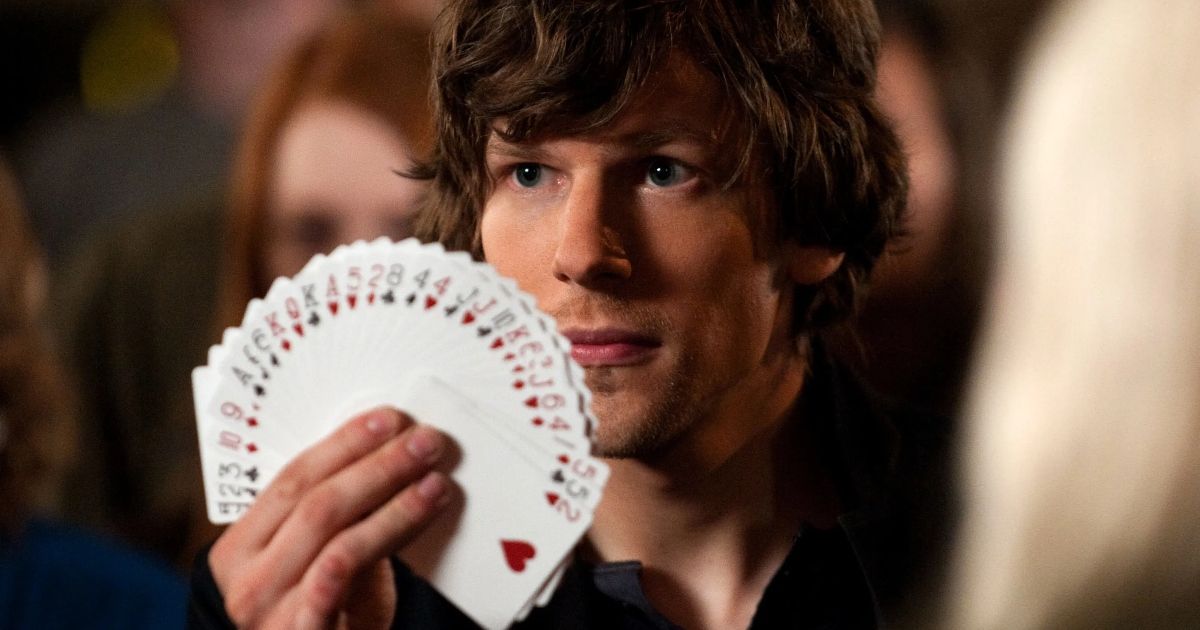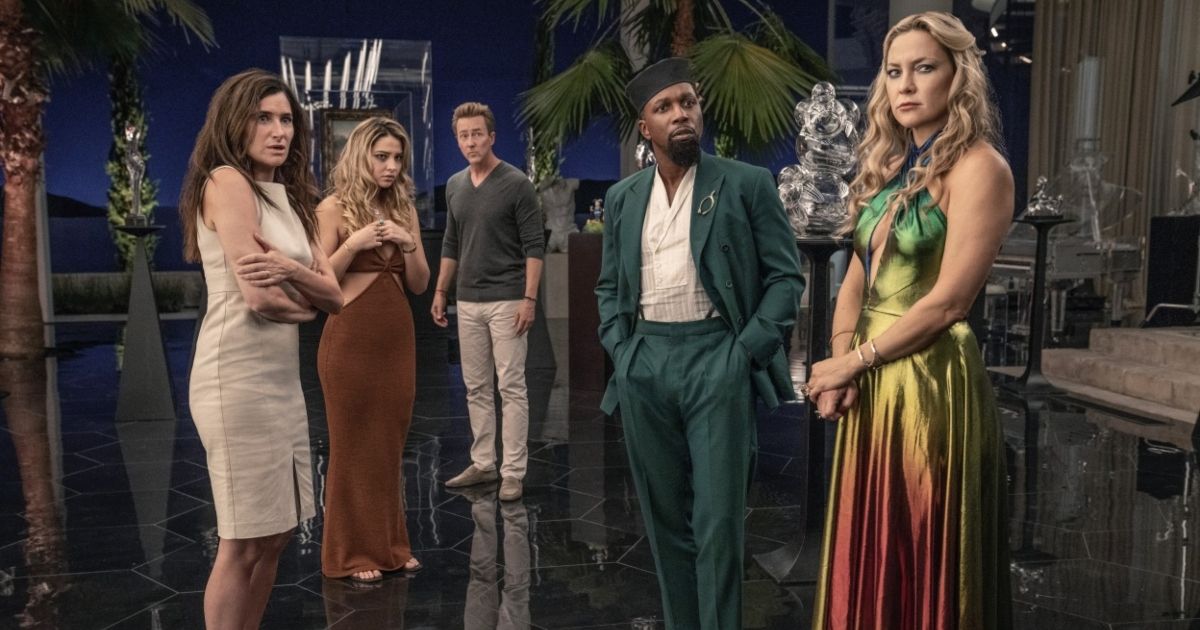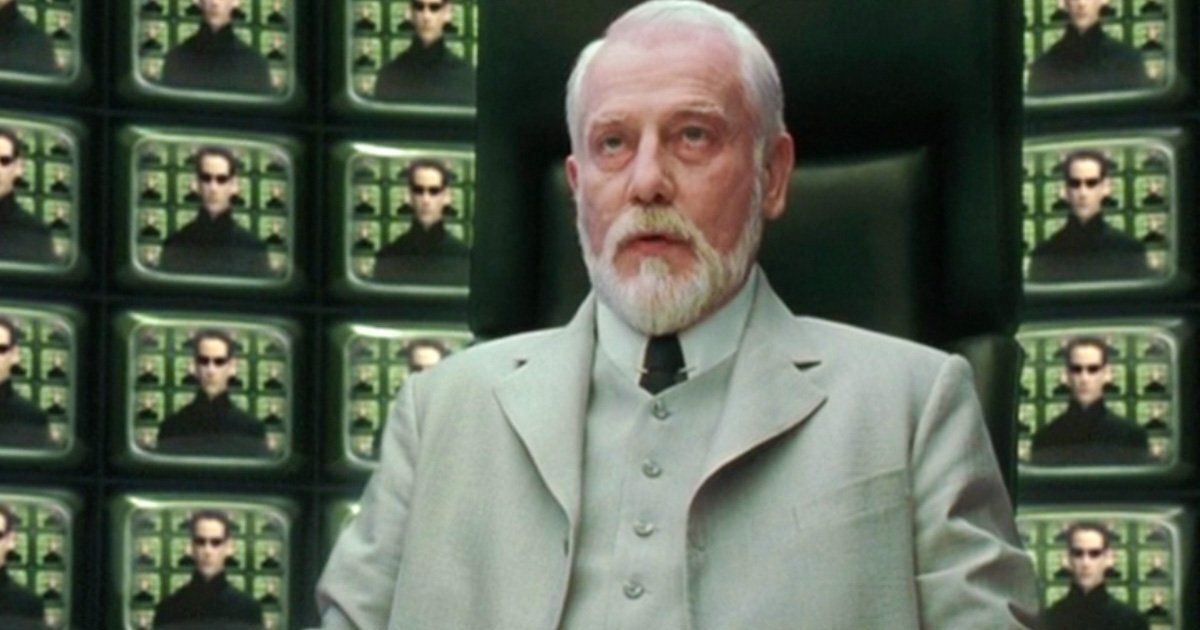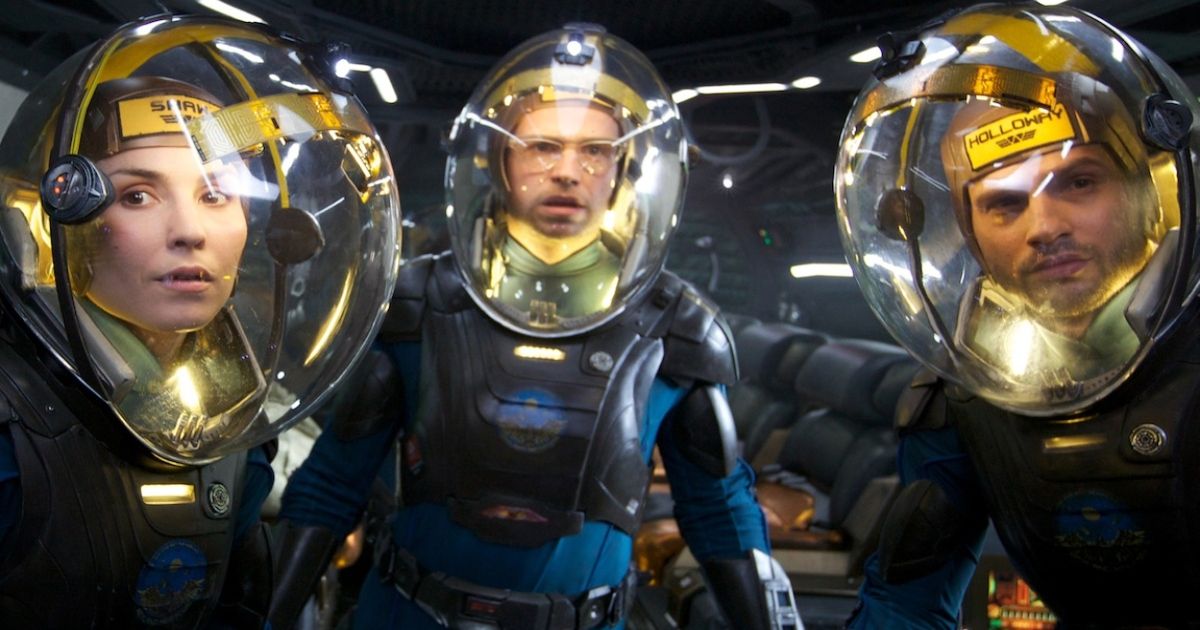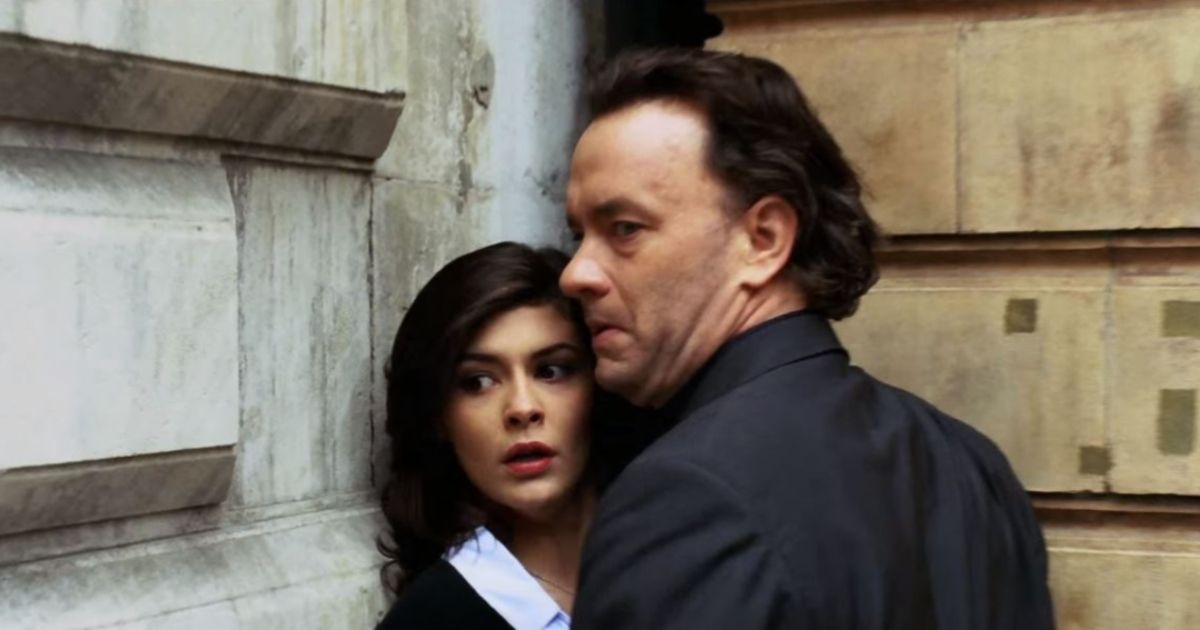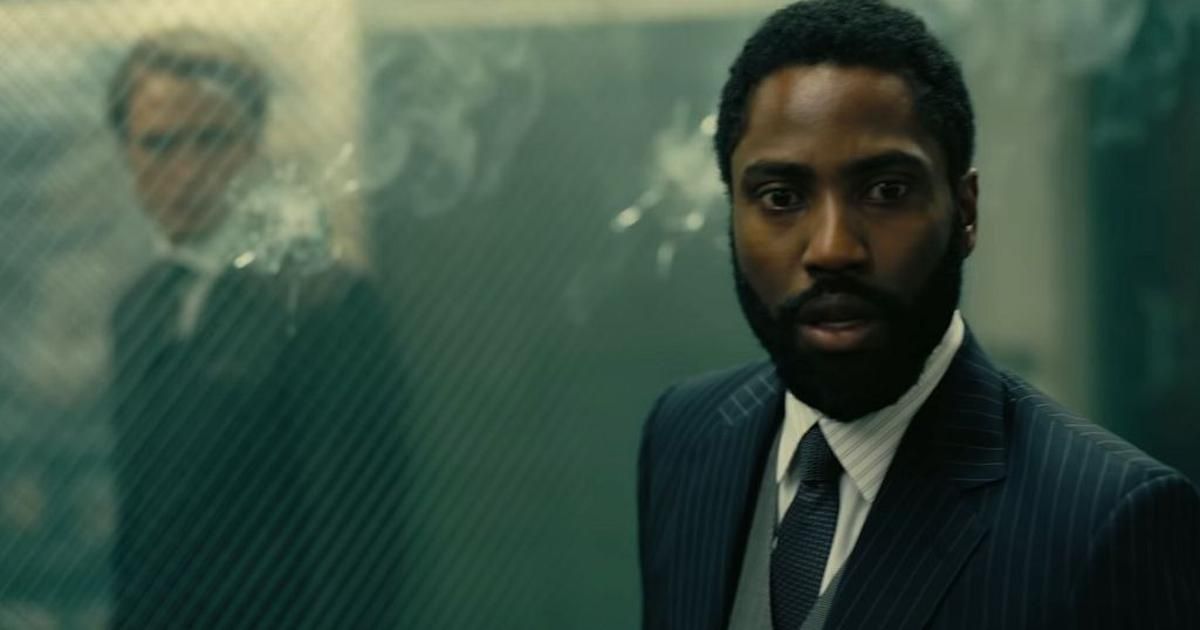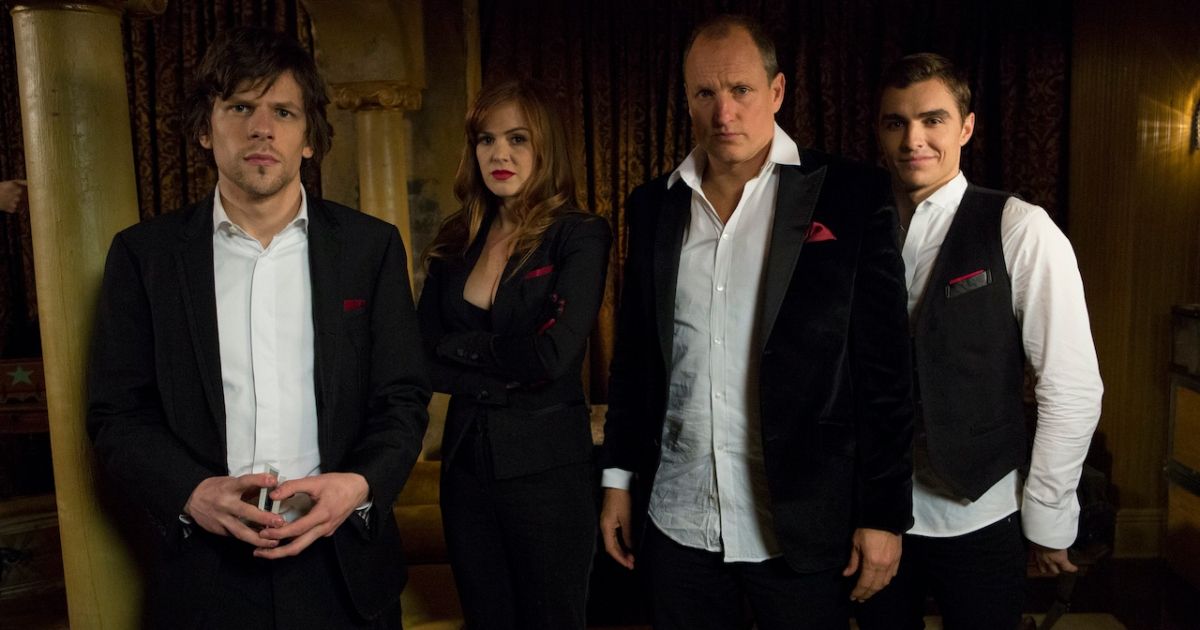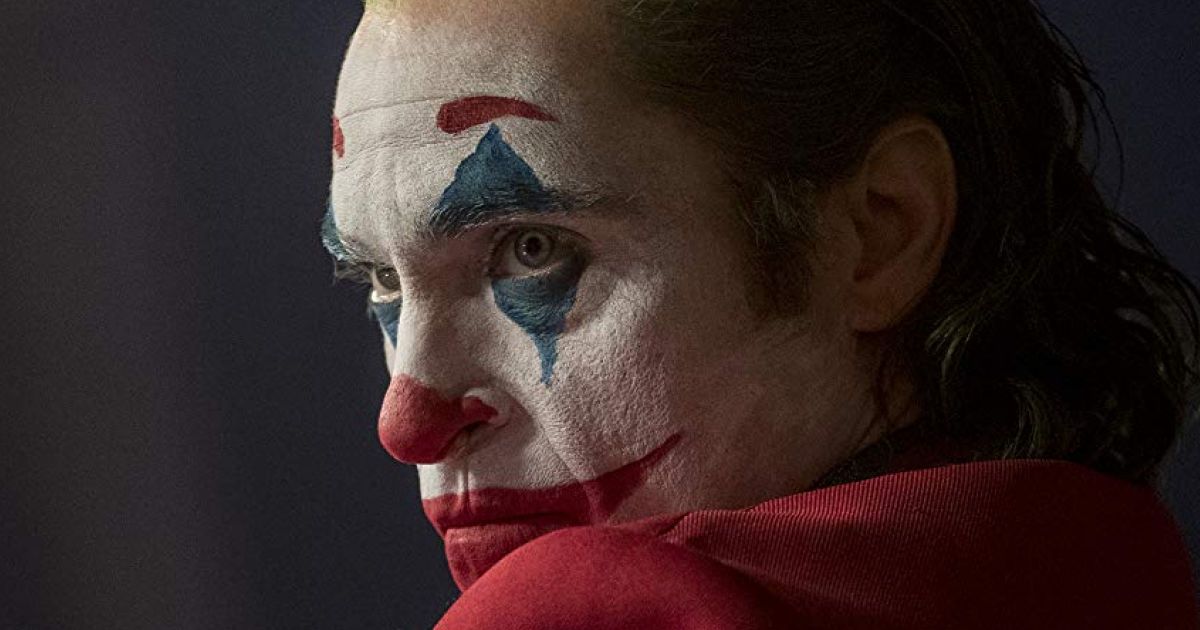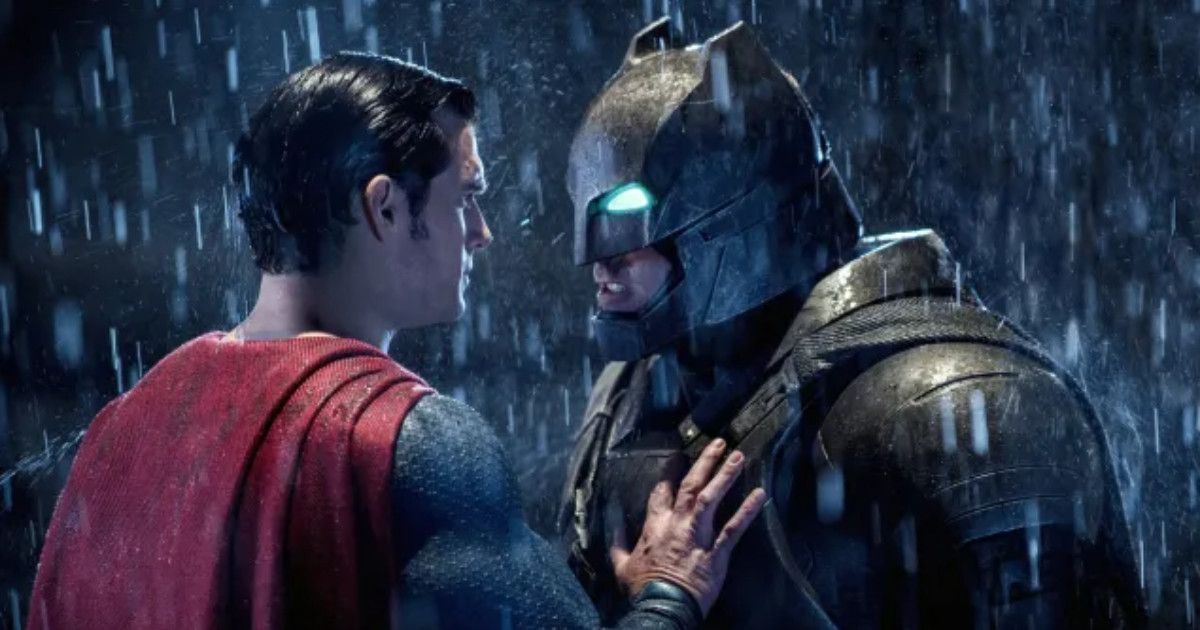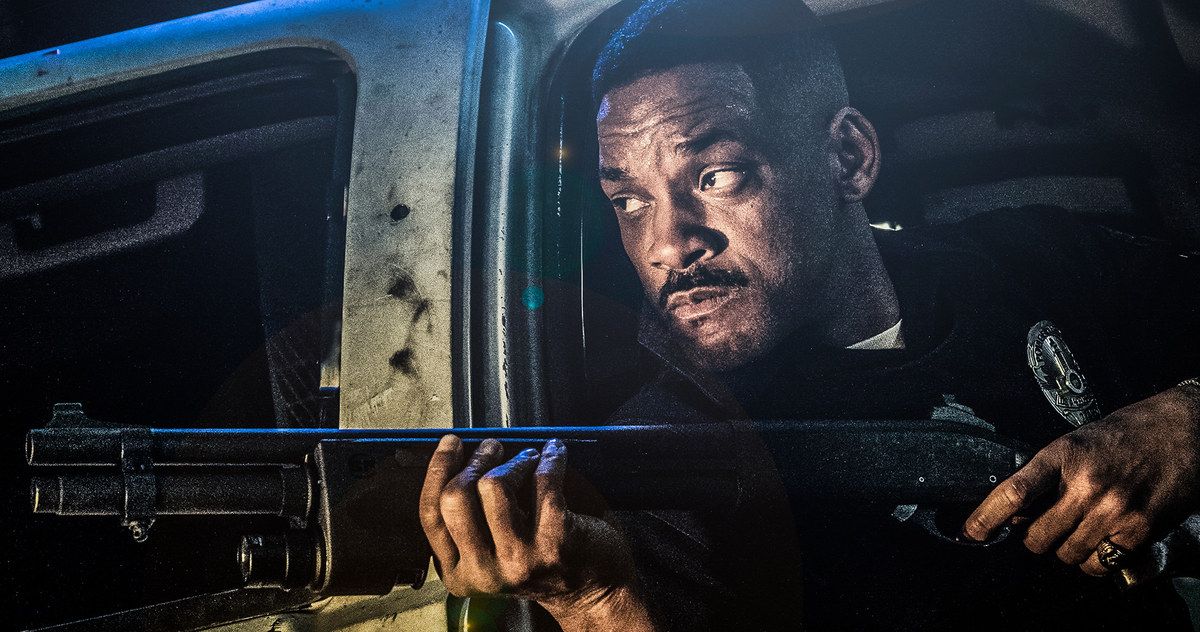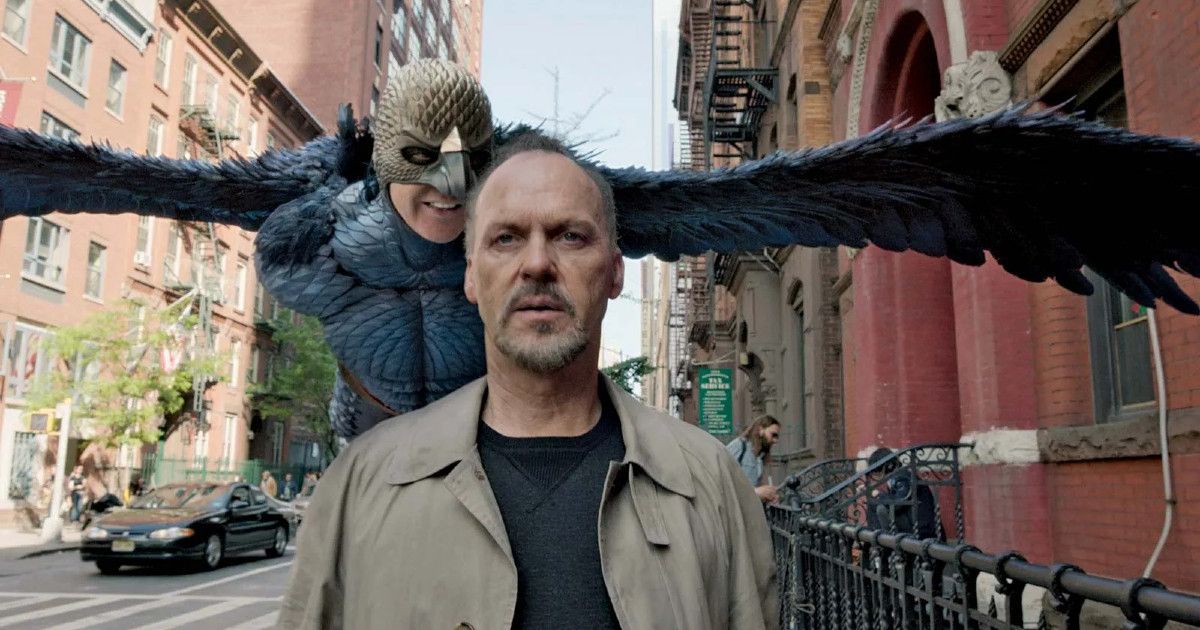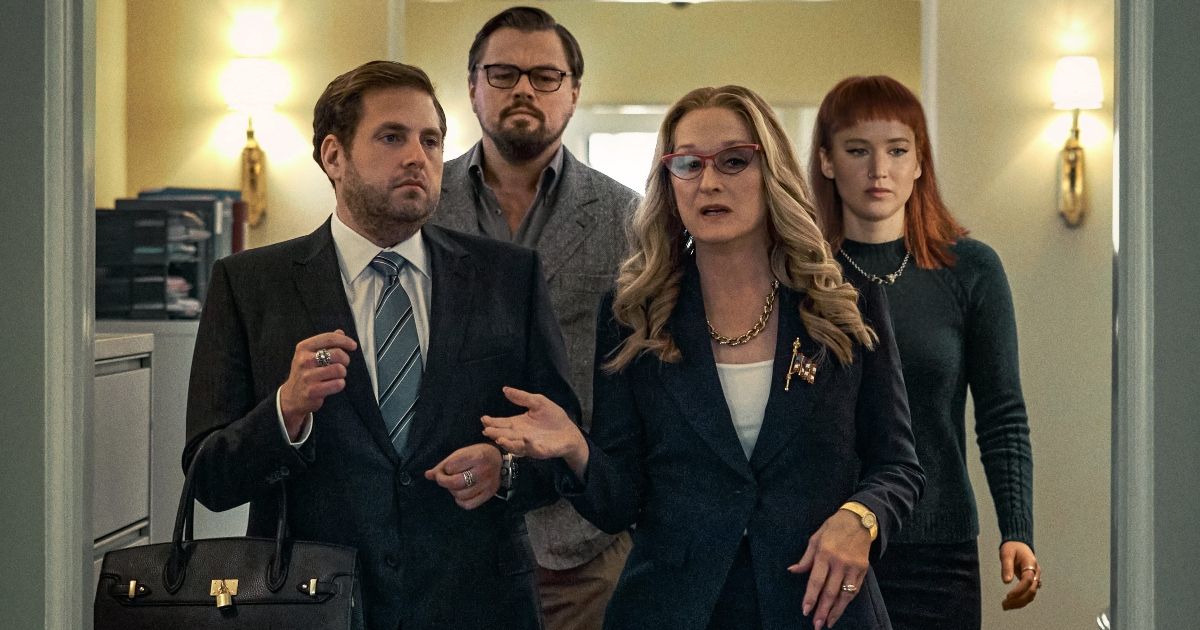Movies have the ability to touch the lives of audiences. They can move us, make us feel things, and provoke deep thoughts about the world around us. At least, some movies can do that. There are other kinds of films that only present the appearance of being meaningful or thought-provoking but fall apart when you take a closer look at what they are trying to say.
Updated August 31, 2023: This article has been updated with additional entries in films that seem smart but are not as clever as they might appear.
Over the years, Hollywood has presented the world with a number of such movies that seem clever. But that is only a mirage, hiding themes and storylines that are mediocre or sometimes just dumb. Let's look at some movies that fans will insist are full of rich depth of storytelling but, in reality, are anything but.
13 Glass Onion: A Knives Out Mystery
The first Knives Out was an entertaining riff on classic Agatha Christie novels revolving around a murder and the many suspects. Expectations were high for the sequel, Glass Onion: A Knives Out Mystery. Unfortunately, writer and director Rian Johnson does not seem to care much for the rules of mystery fiction, with the film being heavy on misdirection but light on an actual mystery.
Glass Onion lays all its cards on the table considerably before the climax of the story. This means there is little detection for lead character detective Benoit Blanc to perform, so for the most part, he simply watches along with the audience while the story unfolds in a series of expository scenes. There is a greater emphasis on comedy and interpersonal drama than on catching the killer and making sure he gets brought to justice, making the movie feel more like a parody of a whodunit rather than an actual whodunit story..
12 The Matrix Reloaded
The Matrix was a groundbreaking action film that combined exhilarating action set pieces with a genuinely engrossing fictional reality. The movie explores a world where humanity has been overtaken by sentient AI machines. All of humanity has been captured and placed in suspended animation, dreaming a collective, eternal dream while plugged into a virtual reality called the Matrix. After the runaway success of the first Matrix movie, its sequels tried to double down on the philosophical side of the story.
What had been a few vague but deep-sounding conversations and references in the first movie was expanded upon as the franchise tried and failed to find something meaningful to say about the human condition and the future of technology.
The Matrix Reloaded is the worst offender in this regard. The best example of the franchise's attempts at finding depth where there is none is on full display in the scene with the Architect. The character rambles on for several confusing minutes about existence and free will with a bunch of clever-sounding words that have no real effect on the protagonist's actions or the film as a whole and sometimes contradict the references to Baudrillard in the first film.
11 Prometheus
The Alien franchise is one of the best sci-fi franchises Hollywood has ever made. Fans were excited when filmmaker Ridley Scott announced he was going to make Prometheus, a prequel that promised to provide answers to burning questions about the origin of the Xenomorphs, their relation to humanity, and the mysterious race called the Engineers that connect the two species.
Unfortunately, Prometheus does a poor job of explaining any of that. In addition, the film is saddled with bad storytelling choices. Most of the main characters perform actions that seem very dumb to move the plot forward, like trained scientists interacting with alien environments and animals without any sort of protection, or scenes with straight-up no explanations provided, like why the Engineers created humanity, why they decided to exterminate them, or why that one Engineer suddenly started attacking the human crew after being awakened.
10 Signs
The early 2000s were a good time to be M. Night Shyamalan. The filmmaker was hot off the breakout success of The Sixth Sense, followed by the underrated, star-studded Unbreakable. Then came 2002's Signs, where Shyamalan told the story of a family living on a farm who all must contend with otherworldly visitors. The movie deals with many themes, including questions about faith, family, and deep-state paranoia regarding the existence of aliens.
Unfortunately, few of those themes get the attention they deserve as Shyamalan tries to wring a sci-fi-thriller tale out of a basic premise that gets stretched very thin by the end of the movie. It doesn't help that the film takes itself way too seriously despite being the kind of story that ends with a fistfight between one of the lead characters and an alien who presumably traveled millions of light years to visit Earth yet apparently forgot to pack a space gun for the trip in case they meet with any local hostiles (and failed to investigate the planet and realize it was mostly water).
9 The Da Vinci Code
Dan Brown is a best-selling author who shot to fame with The Da Vinci Code, a thriller novel that sent shock waves around the world with its racy mystery surrounding a possible descendant of Jesus Christ being hunted down by the Church. Naturally, Hollywood wanted to get in on the action, and soon the film version of The Da Vinci Code was made starring Tom Hanks as the adventuring symbologist (which isn't even a profession; maybe Brown meant semiotician), Robert Langdon.
Unfortunately, both the movie and the novel it is based on suffering from the same problem of seeming clever and plausible at first but not holding up to scrutiny. Despite Brown claiming that all the real-world facts mentioned in his book are accurate, plenty of scholars have shown the many liberties he took while writing his story. Even Tom Hanks admitted in later interviews that The Da Vinci Code and its sequel films based on other Dan Brown novels were not meant to be very deep or true-to-life and are "about as accurate to history as the James Bond movies are to espionage."
8 Tenet
Christopher Nolan has established a reputation as the thinking man's blockbuster filmmaker. Nolan excels at creating complex, non-linear narratives that confuse and fascinate audiences in equal measure. But the filmmaker took this conceit a few steps too far with Tenet, a movie about a war being fought simultaneously in the present and the future, with timelines converging at a certain point thanks to the ability to move backward in time through a process called "Inversion." If all of that sounds preposterous, watching the movie will hardly make it more comprehensible.
Tenet is very puzzlingly made. Many important expositional moments in Nolan's film have blaring music playing over them, so you struggle to understand what anyone is saying. Character motivations are murky at best, like why a future army wants to destroy the present world when this will result in the destruction of the future as well, or why the Protagonist is willing to risk destroying the world to save a woman he met a few days ago. As far as the rules of inversion that are central to the plot of the story are concerned, they have little to do with real-world physics and are so confusing that, at one point, a character tells the Protagonist (and the audience), "Don't try to understand it. Feel it."
7 Now You See Me
What if Danny Ocean and his team of expert conmen from Ocean's Eleven were a bunch of street magicians? That is the question Now You See Me dares to ask. The answer is told in a surprisingly fun and breezy movie that combines classic heist movie tropes with a heaping dose of magic tricks borrowed from some of the most talented illusionists in the world.
Unfortunately, the movie also follows the rules of magic in its narrative style by being all flashy spectacle with little substance. Individual plot points are more concerned with entertaining the audience with twists than explaining how those twists were even possible. The movie's central mystery is also underwhelming, as the story ends with no explanation given as to the nature of the secret society of The Eye that was orchestrating the events of the film from the start.
6 Joker
As an Oscar-winning superhero movie, Joker is often held up as an example of a "serious" and "adult" film that shows how to elevate the genre above CGI explosions and men in tights bashing each other around. But just because Joker is unlike any other mainstream superhero movie does not make it more intelligent or meaningful. In fact, there is little in the movie that has not been done before or, better (the film seems to even realize this with its references to the still relevant The King of Comedy).
The central message of the movie has also come under a lot of criticism. The idea Joker suggests is that mentally ill people who are abandoned by society are at risk of turning violent at any moment. This is a message that has been decried by real-world psychiatrists since it adds to the alienation of real people suffering from mental illnesses. Of course, plenty of people saw the movie and did not get this message from it, but rather that a lack of empathy creates monsters where there wasn't before. Like every movie, it is important to watch Joker with your brain turned on, and understand that the story of one person, even a fictional person, can't be taken in a vacuum.
5 The Whale
The Whale gave the world the chance to see Brendan Fraser at his best; an Oscar-winning performance and a true return to form for the actor. However, while the film itself is not panned by any means, the acclaim for its storytelling and overall direction pales in comparison. This is likely because Darren Aronofsky is a director who has the tendency to take himself far too seriously.
Sometimes it works in his favor, like in his magnum opus, Black Swan. In the case of Mother!, it leaves the audience feeling polarized and unable to come to a consensus. The Whale falls into the latter category, and while trying to be an empathetic movie, it is at odds with the visual language that shows obesity as something to be revolted by. It comes off as fatphobic, which has offended many viewers, especially those who refuse to watch the movie. However, there are those who find the brutal confrontation with the challenges of obesity and food addiction to be a brave, honest, and sometimes necessary take. Overall, if The Whale is as good as it seems or not is all a matter of perspective on a very polarized and, for many, personal topic.
4 Batman v Superman: Dawn of Justice
Zack Snyder is the most divisive superhero movie director ever. He has a passionate contingent of fans ready to defend his work against an army of detractors in an epic battle for the ages. Kind of like what Snyder's 2016 film Batman v Superman: Dawn of Justice was supposed to be. The movie was met with deeply divisive reactions for its portrayal of a Batman who kills, fighting a Superman who doesn't say much of anything.
There are many baffling creative decisions to be found in the movie, like the infamous "Save Martha" moment that has been discussed endlessly online or the baffling depiction of Lex Luthor as a wannabe Mark Zuckerberg who makes strange noises when he wants to appear threatening. Despite trying to appear deep and thoughtful by having references to classic literature, musings on man vs. god philosophical arguments, and gritty depictions of PTSD, Batman V. Superman ends up being less than the sum of its parts with a muddled storyline and puzzling character motivations.
3 Bright
Bright is a terrible movie that thinks it has something to say. It uses magical creatures like orcs, fairies, and wizards to try to make a commentary on race. It does so in the most half-hearted way possible, only using them as set dressing to tackle real issues without actually exploring them. The movie subs in orcs as a minority race...yet does not think of other magical creatures like centaurs or elves.
The worst part is how it tries to explain why humans are prejudiced against Orcs. Unlike the real world, where there is no good excuse for racism and bigotry, the film's in-universe explanation is Orcs sided with the Dark Lord once upon a time, which is why they are hated. Unlike Black Americans who face prejudice in the country despite their ancestors being brought over as slaves and have been constant victims of white oppression, which was out of their control, in Bright, the Orcs are hated because of a choice they made. It is sloppy world-building and a movie that wants to be clever but just shows arrogance.
2 Birdman: The Unexpected Virtue of Ignorance
Birdman: The Unexpected Virtue of Ignorance is a movie with a lot to yell about and does so much that it takes time to break the fourth wall and yell it in the audience's direction. As if the filmmakers took the quote from Garth Marenghi's Darkplace, "I know writers who use subtext, and they're all cowards," to heart. The film is filled with venomous takes about superheroes, blockbuster movies, and critics.
The movie tapped into many people in the industry's frustration with superhero movies at the time, as well as the idea that critics were vindictive, mean people out to get actors because they cannot fathom they may not like the work they do the same way the movie can't fathom why people like superhero movies. This is one of the most poorly aged Academy Award Best Picture Winners just on the fact that is the cinematic equivalent of the "Old Man Yells at Clouds" meme, but the fact that the superhero genre did not receive the takedown, this movie clearly wanted to give to the genre.
1 Don't Look Up
The cast of Don't Look Up reads like a who's who of Hollywood's crème de la crème, including the likes of Leonardo DiCaprio, Jennifer Lawrence, Meryl Streep, and Jonah Hill. Naturally, fans were excited to see what kind of groundbreaking story would convince so many talented actors to sign on the dotted line. When a giant asteroid appears to be headed straight to Earth, a group of scientists attempts to rally America's politicians to take steps to destroy it before the asteroid wipes out all life on the planet.
While Don't Look Up features great performances and a couple of moments of satirical excellence, it is also extremely heavy-handed with its messaging and a bit too one-note with regard to its social commentary. It is hard to take seriously the thinly-disguised warnings the movie poses about humanity's failure to fight climate change when the characters are so outrageously stupid or oblivious that they become caricatures. In the end, Don't Look Up fails to work properly either as a full-on satire or an effective warning against humanity's failings because it tries to do too many things at once.

